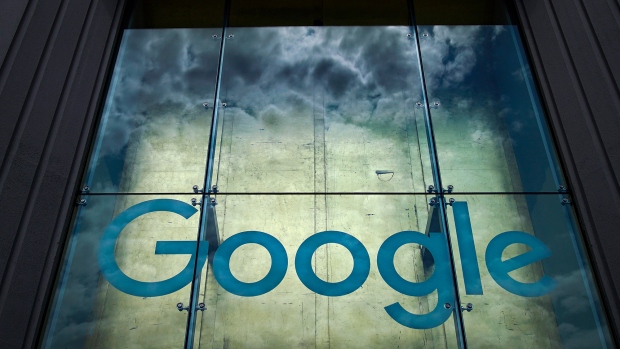Sep 9, 2019
Google may 'stonewall' antitrust probes, state AGs are warned
, Bloomberg News

Republican Senator Josh Hawley warned state attorneys general expected to announce an antitrust probe of Alphabet Inc.’s Google on Monday that they should expect formidable defensive tactics, no matter how cooperative the company has promised to be.
“They will probably stall, stonewall, deflect, deny, threaten,” Hawley, a Missouri freshman who investigated the company when serving as his state’s attorney general, told Bloomberg in an interview on Sunday.
The tech antagonist said he believes more than 40 states will ultimately be joining the probe, including his successor in Missouri, Eric Schmitt. Texas Attorney General Ken Paxton has said he’ll announce a multistate probe Monday into anti-competitive behavior by large tech companies, and Bloomberg reported last week that the investigation is targeting Google.
“I’m really, really pleased by this news that so many states are going to stand together and essentially join Missouri in its efforts, now two years old, to investigate Google,” Hawley said.
Besides the coming states’ probe of Google, the company on Friday disclosed a Justice Department investigation, and New York announced it’s leading a multistate probe of Facebook Inc. as the technology giants face intensifying scrutiny and the possibility of vast fines and even break-up demands. Antitrust investigations can be long, sprawling probes that can drag on for years.
Hawley said that, during his investigation, Google’s opening gambit was to claim that Missouri’s consumer protection statute didn’t apply to the company because it doesn’t sell anything and consumers don’t pay for the service. (Hawley’s probe spanned both consumer protection and antitrust issues.)
Google’s search, email, map and other consumer-facing services are free, but the company uses the vast troves of information it obtains from users to sell advertising all over the world. Alphabet Inc. took in almost $137 billion in revenue last year.
Next Google delayed handing over documents, Hawley said.
“When they finally did start producing documents, then predictably they took the other approach and produced, I think it’s safe to say, millions of pages of documents, many of which we thought were dated,” he said.
At one point in talks over what Google would produce and when, his staff was compelled to write to the company that although they might not have “outright lied to us,” they’d been deliberately misleading and acting in bad faith, Hawley said. He declined to go into greater detail.
“You give your clients a zealous defense, that’s fine,” Hawley said, adding that Google’s tactics were fairly common among corporate targets and that his own office was typically aggressive. “But there’s a difference between doing that and misleading and lying about what you’re going to produce, and trying to shut down an investigation by being totally uncooperative.”
Google spokesman Jose Castaneda said the company has “always acted in good faith in answering regulators’ questions promptly, honestly, and thoroughly.”
“Any suggestion to the contrary is simply false,” he said.
Although Hawley’s probe formally alleged little about the company, it attracted nationwide media attention just as his challenge to incumbent Democratic Senator Claire McCaskill ramped up. Since his election in 2018, Hawley has ridden his broadsides against Big Tech, and some proposals to curb its power, to a position as one of President Donald Trump’s right-hand men on the issue.
Google has only become more powerful in the market, Hawley said, which means that its “privacy violations” are that much more harmful. He said he wouldn’t speculate on what the investigation may produce, but he noted his particular concern about the company’s handling of children’s privacy and tracking of consumers across the web. Hawley said fines need to exceed recent settlements and that breakups and unwinding of mergers “should definitely be on the table.”
On Sept. 4, Google agreed to pay $170 million to the Federal Trade Commission and New York to settle allegations that it violated children’s privacy laws on its YouTube video-streaming platform.
Hawley said the group of states should expect that Google will “certainly buy armies of lawyers. They will buy armies of lobbyists. They will buy armies of economists. They will try and purchase echo chambers and think-tanks.”
The size of the coalition, and the big states such as Texas that are involved, though, will limit what Google can do in the long run, Hawley said. “This is very bad news for Google,” he said.





